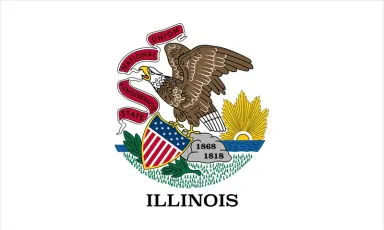New York Trucking Laws

In New York State, semi-truck accidents are a serious concern because of the devastating consequences they can have for those involved. According to the New York State Department of Transportation, there were over 11,000 semi-truck accidents in the state in 2019, resulting in nearly 300 deaths. Many of these accidents happened along high-crash corridors, including Interstates 81, 87, 90, and the New York State Thruway.
To address this issue and protect the safety of all motorists on the road, New York State has implemented several laws and regulations pertaining to trucking accidents. These laws address negligence caused by the trucking company or the truck driver, the concept of "vicarious liability," and several safety regulations that address specific concerns.
New York Hours of Service Regulations
The Hours of Service (HOS) Regulations limit the number of hours a trucker can drive in a day and the number of hours they can work without taking a break. In New York, truck drivers may operate 11 hours daily after ten consecutive hours off-duty. Drivers may drive up to 14 hours at a time and can only work a maximum of 60 hours in 7 days.
These regulations are in place to help prevent fatigue-related accidents and promote safety on the roads. Extended hours on the road can lead to drowsy driving, slow reaction times, and poor decision-making.
You can contact the DOT Complaint Hotline to report a violation at (888) 368-7238.
New York Vicarious Liability Law
New York's Vicarious Liability Law holds that a trucking company can be held liable for the actions of its drivers, regardless of whether the driver acted on the company's behalf or not. This means that if a driver causes an accident while on the job, the trucking company can be held liable for any resulting damages.
When it comes to trucking accidents, the company's vicarious liability can be a significant factor in determining who is responsible for the accident. If the truck driver is found to have caused the accident due to negligence or recklessness, the trucking company can be held liable. This can include liability for damages such as medical expenses, lost wages, and pain and suffering.
However, in some cases, the trucking company's liability may be limited by laws such as the Federal Motor Carrier Safety Administration (FMCSA) regulations. For example, if the truck driver caused the accident due to a personal issue unrelated to the company, the company may not be held liable.
Commercial Driver’s License Requirements in New York
Truckers must have a Commercial Driver's License (CDL) to operate commercial vehicles. Operating a commercial vehicle such as a truck or bus requires more skill, knowledge, and responsibility than operating a personal vehicle. Therefore, truckers must pass knowledge and skills tests to obtain a CDL, meet physical and medical qualifications, and comply with state and federal requirements. This helps to ensure that the roads are safer for all drivers, as well as for the trucker themselves.
Operating a commercial vehicle on public roads without a CDL is illegal. Truckers who are found operating a commercial vehicle without a CDL can be reported by using the DOT Complaint Hotline at (888) 368-7238.
New York Vehicle Maintenance and Inspection Regulations
Truckers and trucking companies are responsible for ensuring that their vehicles are in safe working conditions. This includes regular inspections, maintenance, and repairs as needed. Some specific maintenance and inspection requirements in New York include:
Daily pre-trip inspections: Truckers must conduct a daily pre-trip inspection of their vehicle before starting their shift. A correctly performed pre-trip inspection includes checking items such as brakes, lights, tires, and other critical safety components.
Periodic inspections: Vehicles are subject to routine inspections, typically done at 90-day intervals or when a problem is identified. These inspections cover a more comprehensive list of items, such as the frame, steering, suspension, and exhaust system.
Maintenance records: Truckers and trucking companies must keep records of all inspections, maintenance, and repairs performed on their vehicles. These records must be kept for a certain period and be made available for review by state and federal regulators.
Hazardous materials: If the trucker is transporting hazardous materials, they must meet additional requirements and follow safety procedures, including placarding, labeling, and securing the materials.
Drug and Alcohol Testing Laws in New York
Truckers are subject to random drug and alcohol testing and post-accident testing. They are also prohibited from using drugs or alcohol while on duty.
These laws help ensure that truck drivers are not under the influence of drugs or alcohol while operating a commercial vehicle. Being under the influence of drugs or alcohol can impair a driver's ability to use their vehicle safely, leading to accidents and injuries. By testing truck drivers for drugs and alcohol, companies and regulators can help to reduce the risk of related accidents.
Truck drivers who violate these regulations can face penalties such as fines and even disqualification from operating a commercial vehicle. If you believe a truck driver has been driving their vehicle while under the influence, call 911 to file a report.
New York Size and Weight Restrictions
New York State has specific size and weight restrictions for commercial vehicles that operate on its highways. These restrictions ensure safety on the roads and protect the infrastructure of the streets and bridges. Some general size and weight restrictions for truckers in New York State include:
Width: A maximum of 8.5 feet
Height: A maximum of 13.5 feet
Length: A maximum of 48 feet
Weight: A maximum of 34,000 pounds
Suppose a truck exceeds the maximum weight and size restrictions. In that case, it may be necessary to obtain an oversize or overweight permit from the New York State Department of Transportation (NYSDOT) before operating the vehicle on state highways.
To report a size and weight violation, contact the DOT Complaint Hotline at (888) 368-7238.
Labor Laws for New York Truck Drivers
The New York State Department of Labor governs New York State labor laws. Truckers are subject to the state's minimum wage laws, which currently set the minimum wage at $12.50 per hour for companies with 11 or more employees and $11.80 per hour for employees of companies with ten or fewer employees.
Truckers are also entitled to overtime pay, calculated at 1.5 times the employee's regular pay rate for any hours worked over 40 in a 7-day work week. Additionally, truck drivers are entitled to meal and rest breaks, and employers must keep accurate records of the hours worked by truckers.
To report a suspected labor law violation, call the Task Force hotline at (888) 469-7365.
The New York Environmental Conservation Law
The New York Environmental Conservation Law (ECL) regulates the transportation and disposal of hazardous waste, including removing any materials that truck drivers may transport. The ECL also includes regulations that govern the handling, storage, and transportation of oil and other hazardous materials to prevent spills and minimize the risk of environmental damage.
Under the ECL, truckers who transport hazardous waste in New York State must obtain a permit from the Department of Environmental Conservation and comply with all regulations for the safe handling and transportation of the waste. They must also file regular reports on their waste-handling activities and maintain records of their waste shipments.
In addition, the ECL also establishes strict liability for cleanup costs for any person who causes a release of a hazardous substance, regardless of fault. Even if the release was accidental, the person or entity responsible is still liable for the cost of cleanup.
To report a suspected ECL violation in New York State, call (844) 332-3267.
New York Commercial Trucking Insurance Requirements
Commercial trucking insurance requirements vary depending on the type of freight transported and whether it is transported locally or out of state.
In New York, intrastate truckers who transport their freight locally must meet the maintain the following minimum insurance requirements:
In addition to an active public liability insurance policy, interstate truckers must have bodily injury and property damage coverage. The minimum limits depend on the type of freight they transport, as covered in the table below.
Although not required by the federal government or the state of New York, interstate truckers may need additional policies to conduct business with most shippers. These policies may include cargo, bobtail, or physical damage insurance.
How Much Can Someone Sue For a Truck Accident in New York?
New York is one of the few states in the United States that does not have a limit, or "cap," on the amount of money someone can sue for in a truck accident. As a result, if someone is injured or loses a loved one in a car accident, they can seek total compensation for their damages — including lost wages, medical expenses, and pain and suffering. This policy can be particularly beneficial for individuals who have suffered severe injuries or have incurred significant medical expenses due to a semi-truck accident. Without a cap, individuals have more options to seek compensation and a better chance of obtaining the funds they need to cover their expenses and move forward with their lives.
The Statute of Limitations in New York
New York has a three-year statute of limitations for trucking accidents. Therefore, an individual who has been involved in a trucking accident has three years from the accident to file a lawsuit against the responsible party. The statute of limitations applies to personal injury and wrongful death claims.
This deadline can be shortened if the accident involves a truck owned by the New York State government. In this situation, the victim only has 90 days to file a lawsuit. This abbreviated timeline means that it is imperative to contact the agency that owns the truck to request a claim form immediately after the accident. Otherwise, the victim will likely run out of time to press charges.
It is important to note that the statute of limitations can differ from other types of accidents in other states. Since the time frame can vary based on the circumstances of the accident, it is always best to consult with a truck accident lawyer as soon as possible. Acting quickly is critical to claiming and winning these lawsuits, as evidence can disappear over time, and those involved can forget details.
Is New York a no-fault state?
New York is a "no-fault" state regarding auto insurance. Therefore, in a car or trucking accident, each driver's insurance company will cover their medical expenses and lost wages, regardless of who caused the accident. New York’s Department of Financial Services explains this at a greater length on its website.
Legal Resources for New York Trucking Accident Victims
CourtHelp
Sponsored by the New York State Unified Court System, CourtHelp offers various free legal resources to help people navigate the court system. In just a few clicks, New York residents can easily access court forms, information on filing fees, and fee waivers. This website also provides essential information on the court system and how a course case works, from filing to settlement.
United States District Court
The United States District Court provides free court resources, including how to file a case and the necessary forms. You can also access information on New York's statutes of limitation and links to various government resources that may prove helpful, whether you're looking for legal help or interested in representing yourself.
The National Highway Traffic Safety Administration
The National Highway Traffic Safety Administration (NHTSA) is a federal government agency dedicated to promoting and maintaining the safety of vehicles on the nation's highways. In addition to providing information on commercial vehicle safety laws and regulations, the NHTSA also offers resources for commercial vehicle operators and the general public. They provide a wide range of materials, including safety guides, brochures, and videos on various topics such as drunk driving, distracted driving, and seatbelt safety.
Governor’s Highway Safety Association
In addition to providing information on traffic safety laws, the Governor's Highway Safety Association (GHSA) also works with federal and state agencies to improve traffic safety. The organization researches continuing and emerging issues, such as speeding, alcohol, drug-impaired driving, and distracted driving. Additionally, the GHSA provides data on the number of truck accidents and fatalities to identify high-risk areas and areas of concern.
New York State Department of Transportation
The New York State Department of Transportation (NYSDOT) provides information on traffic laws and regulations, including those specific to commercial vehicles and resources for crash victims. Some examples include information on the claims process and how to obtain a copy of the police report. Additionally, the NYSDOT also offers a Crash Data Portal. This website provides information on the number of crashes and related statistics in the state, which can be helpful for understanding the broader context of the accident.
Expertise.com StaffAuthor
Step into the world of Expertise.com, your go-to hub for credible insights. We don't take accuracy lightly around here. Our squad of expert reviewers, each a maestro in their field, has given the green light to every single article you'll find. From rigorous fact-checking to meticulous evaluations of service providers, we've got it all covered. So feel free to dive in and explore. The information you'll uncover has been stamped with the seal of approval by our top-notch experts.




